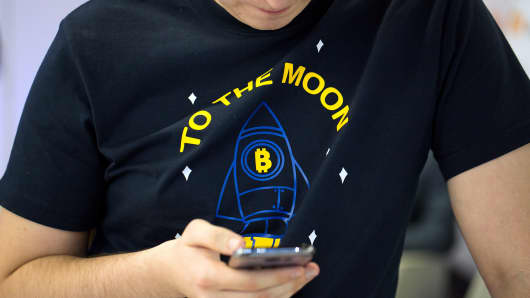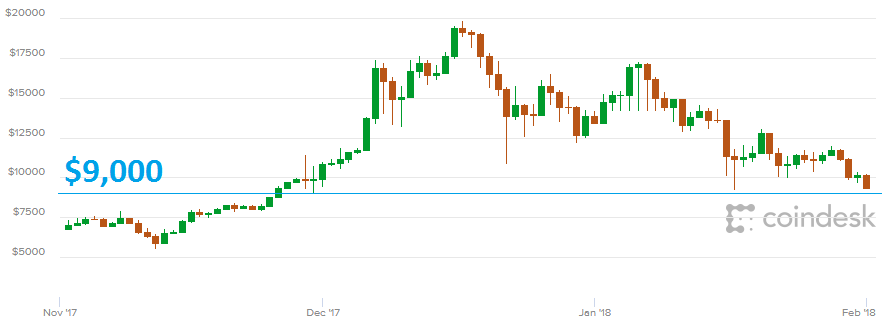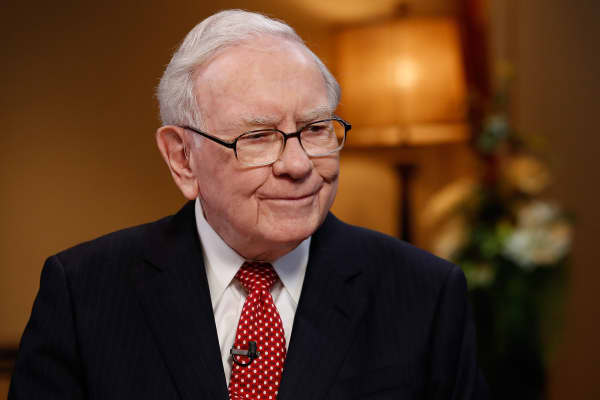Necessities
- by Maurice
- 6 posts
-
Many cryptocurrency speculators are banking on the theory that someone dumber than them will buy their tokens for more than they paid. That’s a pretty good bet…until it isn’t.
AUTHOR: JOI ITOBY JOI ITO
EVER SINCE MY friends and I set up a Digicash server to sell music and artwork with a digital currency called eCash representing real gold, back in the 90s, I’ve been waiting for the day when cryptocurrencies—digital currencies that operate independently of central banks by using encryption to generate units and verify transfers of funds—would transform the world. Cryptocurrencies are finally here, but not exactly in the way that I envisioned.
And so since last year, I’ve found myself issuing warnings instead of accolades about the latest trend in the frothy world of cryptocurrencies: ICOs, or initial coin offerings. The initial idea was a pretty good one—blockchain technology could be used to issue new cryptographically secure “tokens” or “coins” that are easy to transmit peer-to-peer.
The coins could be sold to fund open-source software projects and other services that people find useful but are hard to finance with traditional structures. They could even function as shares and thus allow startups to finance themselves far more efficiently, from a broader range of people, and without the intermediaries that take fees and require a drawn-out process. Or the “coins” could represent some unit of utility, such as a gigabyte of storage or access to a network.
Joi Ito (@joi) is an Ideas contributor for WIRED. Ito has been recognized for his work as an activist, entrepreneur, venture capitalist, and advocate of emergent democracy, privacy, and internet freedom.
As director of the MIT Media Lab and a professor of the practice of media arts and sciences, he is currently exploring how radical new approaches to science and technology can transform society in substantial and positive ways. Ito’s honors include being named as one of TIME magazine’s Cyber-Elite and selection as one of the Global Leaders for Tomorrow by the World Economic Forum.
He is a coauthor with Jeff Howe of Whiplash: How to Survive Our Faster Future.My concern with today’s ICOs is that they’re being fueled by the gold-rush mentality around cryptocurrencies, and so are deployed in irresponsible ways that are causing harm to individuals and damaging the ecosystem of developers and organizations.
We haven’t set up the legal, technical, or normative controls yet, and many people are taking advantage of this.Thus, ICOs are to cryptocurrencies what Trump is to American democracy: not what the founders of the institution envisioned.
It doesn’t have to be that way.
THINK OF AN ICO as a means of creating digital certificates that have signatures, rules, programs, and other attributes controlled cryptographically. You could create a digital version of a check, a stock certificate, an IOU, or a gift card for a hamburger or a barrel of oil. That makes these certificates equivalent to a security, a commodity, or even just a simple financial transaction.
In their traditional forms, each of these elements have different risks and different regulatory bodies governing them. The Securities and Exchange Commission, the Treasury Department, and so on play a role in reducing financial risks and preventing financial crimes. In other words, some of the rules and regulations—the friction—in the existing system is there to protect investors, customers, and society.
But those regulators haven’t caught up with ICOs quite yet. Issuers are getting rich and unwitting investors are buying tokens of questionable value.On July 25, 2017, the SEC announced that if a token looks like a security, it will regulate and treat the token as a security. It subsequently set up a task force to go after ICOs that are scamming investors and exploiting gray areas in securities laws.
But many of the tokens issued through ICOs today are not shares in a company. Rather, they are “tokenized” versions of some sort of product, service, or asset, or a promise to invest funds in research or infrastructure. Issuers are calling the sale of such tokens a “crowd sale” instead of a “funding” to make it clear that people are buying a product rather than a security—and, intentionally or not, avoiding regulatory scrutiny.
A Swiss platform for posting jobs, for instance, used a crowd sale to sell what it calls Global Jobcoin, which buyers can use to pay for employment services. Meanwhile, someone—it is almost impossible to figure out who—is using a crowd sale to peddle Jesus Coins, which promise to forgive sins and fight corruption in “the church,” among other things.
I’m not saying all ICOs are sketchy. Some have legitimate uses, such as Filecoin, which aims to allow a token holder access to storage online and rewards people for hosting files.
The problem is that many of these tokens are traded on exchanges, and are thus viewed by investors as commodities or currencies to trade in and out of.
Most tokens aren’t “pegged” to anything in the real world, and their exchange rates fluctuate. Most tokens are currently going up in value, which has attracted a large number of speculators who aren’t looking for workers or forgiveness of sin.
They don't really care about the underlying asset linked to tokens, and are investing on the Greater Fools Theory—the idea that someone dumber than them will buy their tokens for more than they paid.
This is a pretty good bet … until it isn’t.Requiring companies to sell tokens only to accredited investors won’t solve the problem, because those investors will later sell them to speculators or, worse, to people who have seen the ads online promising to provide the secret of making a bundle on cryptocurrencies. And Wall Street has never been willing to end a rip-roaring party once the keg is tapped.
The regulatory intervention that has just begun will need to be much more sophisticated and technically informed, and in the meantime there’s a long line of people who’ve read about the skyrocketing price of Bitcoin (or Jesus Coin) and are waiting for a chance to buy into one of the myriad ICOs coming down the pipeline.
And volatility adds to the burdens of young companies issuing tokens, which will need functions similar to a central bank and corporate-style investor relations in addition to just trying to run their core businesses. If these companies fail, investors will get some benefit in a fire sale or liquidation, but token holders will end up with something akin to the Zimbabwean dollar in my scrapbook.
But a coin without volatility would be of little interest to such speculators, and it would be quite easy to design. We could start by simply pegging the value of tokens to something, say $1 or the price of one hamburger. A pegged token would fluctuate in “value” only to the extent that the underlying asset fluctuated. If the subscription price is fixed or you only eat hamburgers, there would be much less fluctuation or volatility.
For people hoping to make a fast buck, that linkage would remove potential upside value, narrowing the market of the coins to mostly just those people who would use the service. Having said that, even with a value pegged to some underlying asset, it’s possible that the current irrational market would still make prices go crazy.
If the issuer didn’t own or have the ability to produce the underlying asset, the owners of its coins might be in peril of holding a valueless proxy.
For example, concerns have escalated recently that Tether, a cryptocurrency pegged to the dollar, may or may not have actual dollars to back its tokens. If it doesn’t, then it’s sort of like an uninsured bank printing its own version of dollar bills without anything in its vaults.
People have been buying Tether as a proxy for dollars on cryptocurrency exchanges, and so its failure might cause the price of Bitcoin to plummet and, more broadly, do substantial damage to the market.
A lot of otherwise productive developers are devoting their expertise and attention to working on shallow, quick money ICOs rather than working to sort out the underlying infrastructure and protocols in academic and more open deliberative settings not fueled by warped financial interest.It reminds me of the late-’90s dot-com bubble, when the now-defunct Pets.com was spending investor money buying Super Bowl ads to sell products at 30 percent of what they cost the company itself to buy.
I understand the desire of venture capital to use blockchain and other technologies underpinning ICOs, and for new companies to take this nearly “free money” to build their businesses. But there is, I feel, an ethical issue in such knowing exploitation. I’ve pleaded my case with entrepreneurs, investors, and developers, but it’s like trying to stand in front of a buffalo stampede.
ICO mania will no doubt run its course, as all such financial manias do. But in the meantime, people will be hurt and there will be a painful correction. The one upside is this: As in the wake of the dot-com implosion, serious developers and investors will continue to work to build what will be a more robust network and foundation for the future of the blockchain and cryptocurrencies.
My friend Bill Schoenfeld, along with a small number of investors, made a lot of money when the real estate bubble in Japan popped. At some point, the Japanese real estate bubble got going so fast that almost no one was assessing the underlying value, but Bill insisted on pricing real estate doing just that. When the bubble popped and the prices went into free-fall, he bought a lot of property at a rational price.
Bubbles make pricing irrational going up as well as going down. Maybe the clever thing to do right now is for people to assess the real underlying value of these tokens and be prepared to buy the ones that are actually valuable when the bubble pops.
Amara’s law famously states that “We tend to overestimate the effect of a technology in the short run and underestimate the effect in the long run.
” The largest and most successful companies on the internet were built after the first bubble, when the protocols and the technologies became mature. I’m holding my nose, squinting my eyes, and imagining—and running for the mountains beyond the dust storm around the ICO stampede.
Note on conflict of interests:
When I helped found the MIT Media Lab Digital Currency Initiative, I sold my shares in all blockchain and bitcoin related companies and have not invested in any companies engaging in cryptocurrencies as their primary activity. I do not hold any material amount of any cryptocurrency.
I believe that in the current phase of our work, it is important for me to be clear of any conflicts of interest. You can see a more complete conflict of interest disclosure on my website.
The Blockchain BoomPivoting to blockchain has become the new lifeline for struggling startups.Everipedia wants to use the blockchain to create a more powerful, accountable encyclopedia.Careful what you use your cryptocurrency for: Researchers have found that it's all too easy to dredge up evidence of years-old bitcoin drug deals.
Help friends or someone you care about discover blockchain and
cryptocurrencies, by simply sharing this page. Don't keep it to
yourself.....share Blockchain Company (BC).
Did You Know About This?
You can curate a Personal Blockchain Page right here on Blockchain Company ( BC ) like these 2 great user examples here:
http://www.blockchaincompany.info/Paula
http://www.blockchaincompany.info/Francisco
Show
your blockchain page off to your employer, colleagues and friends. It
demonstrates your professional awareness and competency of this
revolutionary paradigm changing the world. It's free if you are a
consumer user. Just Create your Account here in less than 3 mins!
Or
Click Create Account above in the upper right corner. Instructions how
to curate your blockchain page from information you discover on BC, is
sent in your email after you sign up.
You might be able to capture your ' first name " unique url for your blockchain page too! Like : http://www.blockchaincompany.info/robert
You
may be entitled to cryptocurrency tokens, offers and discounts at any
time in the future once you are a user on our platform.
-
- 1
Samuel Santos Sales & Growth Marketing at BC Awesome...- 10 1 vote
- Reply
-
-
- When you could lose a big chunk of your investment in one day, stress seems inevitable.
- This unique asset requires unique fortitude.
Annie Nova
Caroline Purser | Getty Images
January was a painful time for many bitcoin investors.At the start of the month, a digital coin was worth nearly $15,000. By the end, it was worth around $9,000. (On the first day of February, the currency continued to hover near the $9,000 mark, a critical level that analysts are watching.)
The losses stem in part from new regulations in South Korea and Facebook's announcement that it would ban ads for the digital currencies. More volatility is expected.
Owning an asset that's been called both a fraud and the future can be an emotionally intense experience.When bitcoin lost 30 percent of its value on Dec. 22, for example, one post on Reddit read: "I just re-financed my house to get in.
I'm freaking out." Another user offered support to the frantic: "If anyone's actually depressed or suicidal, come to r/SuicideWatch. We love to listen and talk there.
"It's the 24-hour cycle of cryptocurrencies that can wear on people's nerves, said Jim Smigiel, CIO of absolute return strategies at SEI Investments."With other speculative investments, like private equity and venture capital, you can't check your phone every five minutes," he said. With cryptocurrencies, "You're able to track the minute-by-minute value of it."
"Looking at something with such high volatility all the time is not conducive to an investor's mental health," Smigiel said.
Iconic investor Warren Buffett on bitcoin, his health and the state of markets 11:16 AM ET Wed, 10 Jan 2018 | 03:42Here's how to keep calm on the cryptocurrency roller coaster:Look away
Bitcoin's volatility is part of what makes it irresistible, said Willemien Kets, associate professor at the University of Oxford's Department of Economics."We know from social psychology that the best way to get people hooked on something is to give them a reward on a very uncertain time frame," Kets said.
Don't fall into the trap.
Checking the value of cryptocurrencies constantly is unproductive, Kets said."You can't do anything about the price movement itself," she said.Instead she recommends people decide on a price point at which they'll sell — say, if the asset drops below $10,000 — and set their phone to alert them at that threshold.
Andrey Rudakov | Bloomberg | Getty Images
An attendee wearing a t-shirt decorated with a bitcoin rocket illustration and the words 'To the Moon' checks his smartphone at the CrytoSpace conference in Moscow, Russia, on Friday, Dec. 8, 2017.
Jack Tatar, co-author of "Cryptoassets: The Innovative Investor's Guide to Bitcoin and Beyond," pointed to another reason why constant phone checks are futile."It's very hard to realize the gains you see on your phone," Tatar said. "These markets are not as liquid as the stocks and bond market.
You can check your phone and see you're up to $30,000, but if you wan't to realize that gain, you probably won't be able to do that."That's because it can take days for a cryptocurrency transaction to complete, during which the value can change substantially.
Despite his advice, Tatar admitted he, too, can't look away."My son has tried to tell me to take a few days off," he said. "But I just can't."Buy to hold
When people buy and sell in a dizzied cycle, they miss the bigger picture of cryptocurrencies and the blockchain technology on which it's traded, said financial advisor Ric Edelman, founder and executive chairman of Edelman Financial Services.
"There's no question that digital currencies are the future," Edelman said. "You should be prepared to own it for years."He said his decision to hold bitcoin for more than a decade has paid off."I've watched it go from $1 to $1,000, back to $200 and then to $16,000," he said.
Although he acknowledged that such ups and downs are intolerable for some people."If owning this asset is causing you to stare at the ceiling at night, you shouldn't own it," he said. "There's more to life than money.""I've watched it go from $1 to $1000, back to $200 and then to $16,000."-Ric Edelman , financial advisor
Peter Ayton, who studies behavioral decision theory at the City University of London, said it's hard to expect people to be rational with cryptocurrencies. Many people who've been seduced by bitcoin are individuals who might not fully understand what they're buying, he said."When you have something as volatile as bitcoin, it doesn't lend itself to long-term strategic thinking," Ayton said.Diversify beyond bitcoin
Michael Sonnenshein, investments director at cryptocurrency firm Grayscale, said people might be less anxious if they're not banking on just one cryptocurrency.Fortunately, you don't have to: There are currently some 2,000 cryptocurrencies to chose from. And more investment firms are looking into establishing index funds for cryptocurrencies.
For example, Grayscale is soon launching a "basket of digital currencies," in which investors' money will be spread across five digital currencies.Diversifying is useful for another reason, Edelman said: "It's so early, we don't know which cryptocurrencies will survive."Invest only what you can afford to lose
Tatar said people must restrict how much of their investments go to cryptocurrencies."You're seeing too many people jumping in and betting the ranch, and just saying 'yee-haw!'" he said. "They're not disciplined enough to realize they have to stay within their asset allocation models.
""Rebalancing" your investments is essential with cryptocurrencies, he said, because of their tendency to rapidly change value."If you've invested 20 percent of your portfolio into bitcoin, and all of a sudden you check and, lo and behold, your bitcoins have increased so much that they're now 35 percent of your portfolio, you can rebalance and go back to your asset allocation," Tatar said. "That should protect you from some of that volatility.""You're seeing too many people jumping in and betting the ranch, and just saying Yee-Haw!"-Jack Tatar , co-author, Cryptoassets: The Innovative Investor's Guide to Bitcoin and Beyond
It's not just the owners of cryptocurrencies who are stressed, Smigiel said. Recently, he finds himself consoling his clients who haven't bought any bitcoin, ripple or ethereum.
"We also see anxiety on the flip side — the people who feel they are missing out," he said. "And so you're anxious either way."More from Personal Finance:
Bitcoin, once 'sketchy,' becomes more mainstream
Some cryptocurrency-backed debit cards dropped from Visa network, leaving users scrambling
Bitcoin is too risky to treat as a 'serious' investment, financial advisers say
Help friends or someone you care about discover blockchain and
cryptocurrencies, by simply sharing this page. Don't keep it to
yourself.....share Blockchain Company (BC).
Did You Know About This?
You can curate a Personal Blockchain Page right here on Blockchain Company ( BC ) like these 2 great user examples here:
http://www.blockchaincompany.info/Paula
http://www.blockchaincompany.info/Francisco
Show
your blockchain page of to your employer, colleagues and friends. It
demonstrates your professional awareness and competency of this
revolutionary paradigm changing the world. It's free if you are a
consumer user. Just Create your Account here in less than 3 mins!
Or
Click Create Account above in the upper right corner. Instructions how
to curate your blockchain page from information you discover on BC, is
sent in your email after you sign up.
You might be able to capture your ' first name " unique url for your blockchain page too! Like : http://www.blockchaincompany.info/robert
You
may be entitled to cryptocurrency tokens, offers and discounts at any
time in the future once you are a user on our platform.
-
By
 Admin
Admin - 0 comments
- 3 likes
- Like
- Share
-
Brain Genius Submerges His Bitcoin Mining Rig in a Giant Vat of Oil - Motherboar... (motherboard.vice.com)
The immersion-cooled Bitcoin mining rig cost about $120,000 to make and looks like something straight out of ‘Stargate.’

Daniel Oberhaus
Image: Limping-Zebra/Reddit
At the core of most cryptocurrency networks are miners, the people who use specialized computer equipment to secure the cryptocurrency’s blockchain by performing mathematical equations millions of times per second. In exchange for this computing power, and the electricity it takes to run the computer, these miners are rewarded in cryptocurrency proportionate to their contribution to the network.
Given the high cost of electricity in many places and the computing equipment it takes to mine, it makes sense that miners try to maximize their return in any way possible.
This has resulted in some creative approaches to cryptocurrency mining—including running a mining rig in the back of a Tesla, setting up a wind-powered rig in a field, using your own breath to run a mining rig, and even a mining rig that harvests human body heat—but the immersion cooled rig from Reddit user ‘Limping-Zebra’ takes the cake, at least as far as cool factor goes.
As detailed in a Reddit post on r/Bitcoin, Limping-Zebra managed to create a Bitcoin mining rig consisting of 36 ASICs (a specialized chip that in this case can only be used to mine Bitcoin) that are all immersed in a tank of oil.ASICs can get extremely hot while they’re running, and if you put a bunch of them together the heat can quickly damage the chips.
To address this problem, Limping-Zebra adapted an obscure cooling trick for immersion-cooled PCs and servers for their Bitcoin miners.On each of the 36 ASICs in the tank, the fans are reversed so that cooler oil from the bottom of the tank is sucked up toward the top of the tank in a cycle meant to optimize the dispersion of heat waste away from the ASICs.
This heated oil is then cooled using a plate heat exchanger that also has cool oil from a garden hose running through it. It is then run through a filter to remove particulates and pumped back into the system.
Read More: How Much Body Heat Would It Take to Mine 1 Bitcoin?According to Limping-Zebra, the entire setup cost around $120,000—$20,000 for the vat (which includes a heat exchanger and all the necessary electronic components, including an Ethernet switch) and another $100,000 for the ASICs.
The entire system uses about 50kw of power—for the sake of comparison, that’s roughly enough power for 25 average American homes. The miners have been running “since last summer and show no signs of having any issues” and generate about 1.5 bitcoins per month, according to Limping-Zebra.
“I am a big proponent of immersion cooling technologies and believe people should experiment with it to unlock unlock the full potential of this technology,” Limping-Zebra said in a Reddit post.
“I hope my sharing this will motivate some people to buy a fish tank and dunk an ASIC or a GPU in there and start learning new ways of optimizing our machines.
”A video of the immersion Bitcoin mining set up can be seen on Reddit.
Help friends or someone you care about discover blockchain and
cryptocurrencies, by simply sharing this page. Don't keep it to
yourself.....share Blockchain Company (BC).
Did You Know About This?
You can curate a Personal Blockchain Page right here on Blockchain Company ( BC ) like these 2 great user examples here:
http://www.blockchaincompany.info/Paula
http://www.blockchaincompany.info/Francisco
Show
your blockchain page of to your employer, colleagues and friends. It
demonstrates your professional awareness and competency of this
revolutionary paradigm changing the world. It's free if you are a
consumer user. Just Create your Account here in less than 3 mins!
Or
Click Create Account above in the upper right corner. Instructions how
to curate your blockchain page from information you discover on BC, is
sent in your email after you sign up.
You might be able to capture your ' first name " unique url for your blockchain page too! Like : http://www.blockchaincompany.info/robert
You
may be entitled to cryptocurrency tokens, offers and discounts at any
time in the future once you are a user on our platform.
-
By
 Admin
Admin - 0 comments
- 1 like
- Like
- Share
-
By
-
- The decline followed reports that raised worries about increased regulation in India and potential price manipulation at a major exchange.
- Fundstrat's Tom Lee, the only major Wall Street strategist to issue formal price targets on bitcoin, said two weeks ago that $9,000 is a "major low" for bitcoin and "the biggest buying opportunity in 2018."
- The $9,000 to $10,000 price range has been a difficult one for bitcoin to break below since first topping $10,000 in late November.
Evelyn Cheng | @chengevelyn
A man walks past a Bitcoin symbol on a window of the offices of the bank 'La Maison du Bitcoin' on December 05, 2017 in Paris.
Bitcoin dropped Thursday to trade below $9,000, a critical level of support that many analysts are watching. The decline followed reports that raised worries about increased regulation in India and potential price manipulation at a major exchange.
The digital currency dropped nearly 13 percent to a low around $8,810 in late morning trading, ET, on Coinbase, the leading U.S. marketplace for trading major cryptocurrencies.
Coinbase reported at 11:40 a.m., ET, that its system was experiencing issues with a provider of SMS 2-factor authentication that was impacting "user sign-in, signups, and confirmations for sensitive actions," according to the company's status website.
Bitcoin recovered slightly in midday trading to just above $9,000.
CoinDesk's bitcoin price index, which tracks prices from four major cryptocurrency exchanges including Coinbase, also briefly fell below $9,000 and was trading near $8,948. CME's and Cboe's bitcoin futures contracts for February both fell below $9,000 as well and hovered around that level.Bitcoin performance in the last hour
Source: CoinbaseThe drop came after comments from India's minister of finance, Arun Jaitley, that raised concerns about increased regulation on cryptocurrencies in the country.
The New York Times also reported Wednesday that an increasing number of digital currency investors are worried the price of bitcoin and other digital currencies have been inflated by cryptocurrency exchange Bitfinex, which is included in CoinDesk's price index.
Bloomberg reported Tuesday that in December, the U.S. Commodity Futures and Trading Commission subpoenaed Bitfinex and a cryptocurrency company called Tether, which is run by many of the same executives.Representatives for Bitfinex and Tether did not immediately respond to a CNBC request for comment.
"Concerns over tether are a minor contributing factor" to bitcoin's decline, Ari Paul, chief investment officer at cryptocurrency investment firm BlockTower Capital, said in an email. "After the parabolic rally into mid-January, the market remains generally in corrective mode where minor bearish headlines are piling on to the fearful sentiment.
"Despite bitcoin's dip below $9,000 Thursday, the cryptocurrency held close to the psychologically key level in midday trading.
Fundstrat's Tom Lee, the only major Wall Street strategist to issue formal price targets on bitcoin, said two weeks ago that $9,000 is a "major low" for bitcoin and "the biggest buying opportunity in 2018."
In that Jan. 18 report, Lee also raised his year-end price target for bitcoin to $25,000.Bitcoin three-month performance
Source: CoinDesk, CNBCOther investors are keeping a close eye on the $9,000 to $10,000 range.Earlier this week, Joe DiPasquale, founder and CEO of BitBull Capital, a cryptofund that invests in other cryptofunds, told CNBC that hedge-fund managers he spoke with "are pretty encouraged now for the defining of a new bottom for bitcoin around $10,000. It's a support level that can be moved up from.
"The $9,000 to $10,000 price range has been a difficult one for bitcoin to break below since it first topped $10,000 in late November. In January, bitcoin fell below $10,000 three times but always recovered, according to CoinDesk. Thursday's levels below $9,000 marked the cryptocurrency's lowest in just over two months.
"Lots of news regarding regulation is causing the market to panic," said Nick Kirk, quantitative developer and data scientist at Cypher Capital, a cyrptocurrency trading firm.India's Jaitley said in a speech Thursday that the government "does not consider cryptocurrencies legal tender or coin and will take all measures to eliminate use of these cryptoassets in financing illegitimate activities or as part of the payment system," according to a transcript from The Hindu.
Jaitley also said the Indian government will explore the potentials of the blockchain technology, which is behind bitcoin and other cryptocurrencies."We think ethereum will outperform bitcoin by a country mile," Kirk said. "We think the war between bitcoin and bitcoin cash is having a negative effect on bitcoin sentiment.
"Ethereum erased earlier gains and was trading 3.5 percent lower near $1,079, according to CoinMarketCap. Bitcoin cash, which split off from bitcoin in August, fell 13.7 percent to $1,283.
Discover more from CNBC here: https://www.cnbc.com/2018/02/01/bitcoin-drops-9-percent-nears-crucial-make-or-break-level-of-9000.ht
Help friends or someone you care about discover blockchain and
cryptocurrencies, by simply sharing this page. Don't keep it to
yourself.....share Blockchain Company (BC).
Did You Know About This?
You can curate a Personal Blockchain Page right here on Blockchain Company ( BC ) like these 2 great user examples here:
http://www.blockchaincompany.info/Paula
http://www.blockchaincompany.info/Francisco
Show
your blockchain page of to your employer, colleagues and friends. It
demonstrates your professional awareness and competency of this
revolutionary paradigm changing the world. It's free if you are a
consumer user. Just Create your Account here in less than 3 mins!
Or
Click Create Account above in the upper right corner. Instructions how
to curate your blockchain page from information you discover on BC, is
sent in your email after you sign up.
You might be able to capture your ' first name " unique url for your blockchain page too! Like : http://www.blockchaincompany.info/robert
You
may be entitled to cryptocurrency tokens, offers and discounts at any
time in the future once you are a user on our platform.
-
By
 Admin
Admin - 0 comments
- 1 like
- Like
- Share
-
The number of jobs related to blockchain technology is rocketing - as is interest in the positions - according to new jobs data, on the back of the rising price of bitcoin.Blockchain job vacancies tripled in December 2017 to 83 job listings per million, up from 26 per million in the same month a year earlier.
Read more: Shell just made its first investment in a blockchain startup
And there were 73.1 clicks per million from candidates interested in the jobs, up from 8.8 per million in December 2016.Interest in blockchain jobs is rising at a faster rate, helping close a skills gap that was noticeable in 2016 before the technology entered the mainstream said Indeed, the jobs site which compiled the figures. Vacancies had outstripped candidates by four to one at the start of 2017.
"While the number of opportunities and searches remains modest, Indeed’s data shows companies are increasingly seeking experts to focus on this new technology - and jobseekers have been quick to react," said Indeed UK managing director Bill Richards.‘‘It is worth noting that these are specialised roles and they can be hard to fill. However, blockchain is a field that is certainly worth watching as both jobseekers and employers seize the opportunity to capitalise on its potential.’’
The most in demand blockchain related role is currently developer, followed by recruiter and software engineer. The average salary for roles requiring blockchain expertise is £30,117.The top 10 most in demand blockchain job roles
- Developer
- Recruiter
- Software Engineer
- Director IT Digital Strategy & Innovation
- Java Developer
- C# Developer
- Senior QA Engineer
- Solution & Proposition Architect
- Senior Developer
- Project Manager
This is an article report form City.AM discover more here: http://www.cityam.com/279808/bitcoin-price-rise-sends-blockchain-job-vacancies-soaring
Help friends or someone you care about discover blockchain and cryptocurrencies, by simply sharing this page. Don't keep it to yourself.....share Blockchain Company (BC).
Did You Know About This?
You can curate a Personal Blockchain Page right here on Blockchain Company ( BC ) like these 2 great user examples here:
http://www.blockchaincompany.info/Paula
http://www.blockchaincompany.info/Francisco
Show your blockchain page of to your employer, colleagues and friends. It demonstrates your professional awareness and competency of this revolutionary paradigm changing the world. It's free if you are a consumer user. Just Create your Account here in less than 3 mins!
Or Click Create Account above in the upper right corner. Instructions how to curate your blockchain page from information you discover on BC, is sent in your email after you sign up.
You might be able to capture your ' first name " unique url for your blockchain page too! Like : http://www.blockchaincompany.info/robert
You may be entitled to cryptocurrency tokens, offers and discounts at any time in the future once you are a user on our platform.
-
By
 Admin
Admin - 0 comments
- 1 like
- Like
- Share
-
Say goodbye to ads like “Richard Branson Reveals Trading Bitcoins Will Make You Quit your job in 30 Days!” #ICO #Bitcoin #Ethereum
Originally posted on January 30, 2018, at 7:00 p.m.Updated on January 30, 2018, at 7:19 p.m.
By Ryan Mac (BuzzFeed News Reporter) Jane Lytvynenko (BuzzFeed News Reporter) Alex Kantrowitz (BuzzFeed News Reporter)
Facebook is banning ads that promote bitcoin and other cryptocurrencies in an effort to protect its users from “financial products and services frequently associated with misleading or deceptive promotional practices.
"The platform has recently been criticized for hosting dubious cryptocurrency-related ads, some that appeared to promote get-rich quick schemes and potential scams. Earlier this month, BuzzFeed News highlighted how some of these Facebook ads peddled bitcoin-related disinformation and fake news touting their services and Initial Coin Offerings (ICOs).
“We want people to continue to discover and learn about new products and services through Facebook ads without fear of scams or deception,” Robert Leathern, a Facebook product management director, said in a company blog post.
“That said, there are many companies who are advertising binary options, ICOs and cryptocurrencies that are not currently operating in good faith.”Among the ads targeted, those from "crypto-genius" James Altucher, a digital currency evangelist who's been featured on media outlets like CNBC. Altucher has not yet responded to a request for comment.
"Arguably it was a poor ad review process that let these ads through in the first place."
Gavin Sheridan, CEO of legal startup Vizlegal, welcome Facebook's move — with a few caveats. "The adage to trust what people do - not what they say - holds true, as ever," he told BuzzFeed News. "In effect, Facebook already bans many of these sorts of deceptive ads - often placed by advertisers that redirect to websites made to look like news providers such as CNN, that in turn lead to websites that seek to obtain credit card details - often in situations where users have no idea what they are buying.
Arguably it was a poor ad review process that let these ads through in the first place."
The move to police shady ICO ads comes as Facebook works to fix its platform, which has routinely been exploited by bad actors, from scam artists to fake news purveyors to foreign governments seeking to upend US politics. In the past few weeks, Facebook announced significant changes to its News Feed intended to limit the reach of untrustworthy news sources while boosting local news outlets and posts from friends and family.
Just how well Facebook will enforce the policy it just announced is a curious question. Last year, for example, ProPublica reported that Facebook allowed advertisers to exclude users by race. Last February, following that report Facebook vowed to crack down on discriminatory ads, but when ProPublica followed up in November, they were still able to purchase advertising that wouldn’t be shown to African Americans, people who need wheelchair ramps, and even Jews, among others.
“We may not catch every ad that should be removed under this new policy,” the Facebook announcement said.It’s not clear whether the policy has already been enforced, but some of the types of advertisements Facebook intends to target are still on the platform.
A Facebook spokesperson confirmed that James Altucher's ads will no longer be allowed, but an unverified page using Altucher’s name, for example, is still promoting advertisements for “New must-own cryptocurrencies could turn as little as $10 into a fortune.
” The ads lead to a website that looks to sell Altucher’s “Masterclass on Cryptocurrencies.”“If you follow my script below, you could turn $100 into a retirement fortune in the next 12 months… while minimizing your risk,” says the banner at the top.
Ryan Mac is a senior technology reporter for BuzzFeed News and is based in San Francisco. He reports on the intersection of money, technology and power.
Contact Ryan Mac at [email protected].
Jane Lytvynenko is a reporter for BuzzFeed News and is based in Toronto, Canada.
Contact Jane Lytvynenko at [email protected].
Alex Kantrowitz is a senior technology reporter for BuzzFeed News and is based in San Francisco. He reports on social and communications.Contact Alex Kantrowitz at [email protected].
Got a confidential tip? Submit it here.
Help friends or someone you care about discover blockchain and cryptocurrencies, by simply sharing this page. Don't keep it to yourself.....share Blockchain Company (BC).
Did You Know About This?
You can curate a Personal Blockchain Page right here on Blockchain Company ( BC ) like these 2 great user examples here:
http://www.blockchaincompany.info/Paula
http://www.blockchaincompany.info/Francisco
Show your blockchain page of to your employer, colleagues and friends. It demonstrates your professional awareness and competency of this revolutionary paradigm changing the world. It's free if you are a consumer user. Just Create your Account here in less than 3 mins!
Or Click Create Account above in the upper right corner. Instructions how to curate your blockchain page from information you discover on BC, is sent in your email after you sign up.
You might be able to capture your ' first name " unique url for your blockchain page too! Like : http://www.blockchaincompany.info/robert
You may be entitled to cryptocurrency tokens, offers and discounts at any time in the future once you are a user on our platform.
-
By
 Admin
Admin - 0 comments
- 1 like
- Like
- Share
-
By








